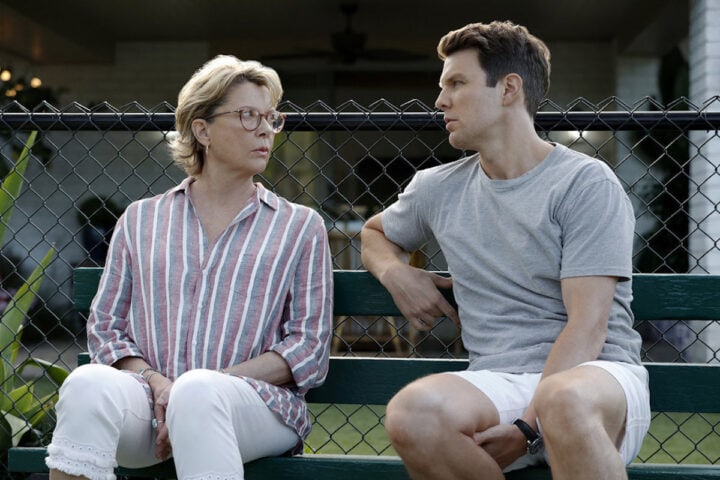Adapted from Lui Cixin’s award-winning Remembrance of Earth’s Past trilogy, and drawing primarily from the first novel in the series, 3 Body Problem is a mystery story that takes place on a cosmic scale. David Benioff, D.B. Weiss, and Alexander Woo’s series begins with a slew of suspicious deaths in the scientific community. When the world’s particle accelerators simultaneously begin churning out nonsensical data, an unnamed agency becomes convinced that these two events are somehow connected and sends a charmingly disheveled intelligence officer, Da Shi (Benedict Wong), to investigate.
As he sleuths into the ongoing deaths, Da uncovers a conspiracy that can be traced all the way back to the bloodiest days of China’s Cultural Revolution and to an astrophysicist named Ye Wenjie (played by Zine Tseng in her youth and then Rosalind Chao as an adult). Through flashbacks we learn that, distraught by the violence that she’d witnessed, Ye sent a message into space, begging an alien race to come and save humanity from themselves.
Back in the present, Da tracks down a group of gifted scientists who also happen to be friends of Ye Wenjie’s daughter. Two of the scientists, Jin Cheng (Jess Hong) and Jack Rooney (John Bradley), stumble upon a hyper-realistic VR video game about an alien planet caught in a cycle of destruction and rebirth. As Cheng and Rooney explore this digital world together, it provides the series with some truly dazzling set pieces, all while Bradley quips away with the same charming obsequiousness he brought to Samwell Tarly in Game of Thrones.
Another member of the team, Augie Salazar (Eiza González), develops a super-strong nano fiber that’s weaponized in the show’s most jaw-dropping action sequence, shredding a huge vessel into pieces and everyone inside it. As effective as the scene is on a visual level, though, the plan involving it is deeply stupid given that the operation is about recovering a precious object that the nano fibers could easily have destroyed. And Augie’s reaction to seeing her invention used in such a gruesome way oscillates wildly between somber acceptance and hysterical grief.
Most of the scientists don’t really transcend their prescribed archetypes. Jin is the straight arrow, Jack is the happy-go-lucky one, Saul Durand (Jovan Adepo) is a super-intelligent slacker, and Will Downing (Alex Sharp) is the sweet-natured guy who can’t quite keep up with his more brilliant friends. The relationships between them are similarly underdeveloped: Will is madly in love with Jin, but we’d never know that unless other characters didn’t keep telling us.
Da is more fully rounded, thanks in part to the sheer amount of screentime we get with him and Wong’s charmingly haggard performance—all hang-dog expressions and lethargic line deliveries. Da goes about his work with the wearied diligence of a janitor, quietly cleaning up the mysteries of the universe as best he can. His boss, Wade (Liam Cunningham), only becomes a major player later in the series, but he threatens to steal the whole thing with his brusque Irish humor. Who better to lead a rebellion against an alien superpower than a pissed-off Dubliner?
In general, 3 Body Problem is at its best when it leaves the human drama behind and digs into brainy notions like quantum entanglement. It can get pretty heady, but the series does a great job of explaining things in layman’s terms, and it uses complicated scientific concepts to twist the plot in fascinating directions and to stage some truly unique action set pieces.
Like Christopher Nolan’s Oppenheimer, 3 Body Problem largely orbits around the Promethean possibility that humanity has doomed itself in its pursuit of progress. For Ye and several other characters, the idea of a hyper-intelligent alien race that could come to humanity’s rescue becomes like a new religion, but it’s one where a deity’s existence can potentially be scientifically proven. This element of the series is reminiscent of the Ted Chiang short stories that explore what life would be like if religious concepts were observable facts, and it makes for the most though-provoking and the most effectively dramatized elements of the series.
Since 2001, we've brought you uncompromising, candid takes on the world of film, music, television, video games, theater, and more. Independently owned and operated publications like Slant have been hit hard in recent years, but we’re committed to keeping our content free and accessible—meaning no paywalls or fees.
If you like what we do, please consider subscribing to our Patreon or making a donation.






